
Mathis James Reed was an American blues musician and songwriter. His particular style of electric blues was popular with a wide variety of audiences. Reed's songs such as "Honest I Do" (1957), "Baby What You Want Me to Do" (1960), "Big Boss Man" (1961), and "Bright Lights, Big City" (1961) appeared on both Billboard magazine's R&B and Hot 100 singles charts.

Johnny Otis ; December 28, 1921 – January 17, 2012) was a Greek American singer, musician, composer, bandleader, record producer, and talent scout. He was a seminal influence on American R&B and rock and roll. He discovered numerous artists early in their careers who went on to become highly successful in their own right, including Little Esther Phillips, Etta James, Alan O'Day, Big Mama Thornton, Johnny Ace, Jackie Wilson, Little Willie John, Hank Ballard, and The Robins, Sugar Pie Desanto, among many others. Otis has been called the "Godfather of Rhythm and Blues".

Tapestry is the second studio album by the American singer-songwriter Carole King. Produced by Lou Adler, it was released on February 10, 1971, by Ode Records. The album's lead singles, "It's Too Late" and "I Feel the Earth Move", spent five weeks at number one on both the Billboard Hot 100 and Easy Listening charts.
"Prisoner of Love" is a 1931 popular song, with music by Russ Columbo and Clarence Gaskill and lyrics by Leo Robin.
"Honky Tonk" is an instrumental written by Billy Butler, Bill Doggett, Clifford Scott, and Shep Shepherd. Doggett recorded it as a two-part single in 1956. It became Doggett's signature piece and a standard recorded by many other performers.

"Deacon Blues" is a song written by Walter Becker and Donald Fagen in 1976 and recorded by their group Steely Dan on their 1977 album Aja. It peaked at number 19 on the Billboard charts and number 17 on the U.S. Cash Box Top 100 in June 1978. It also reached number 40 on the Easy Listening chart. In Canada, it peaked at number 14, a position it occupied for two weeks, and number 20 Adult Contemporary. In 2021, it was ranked No. 214 on Rolling Stone magazine's list of the "500 Greatest Songs of All Time".
"Don't Get Around Much Anymore" is a jazz standard written by composer Duke Ellington. The song was originally entitled "Never No Lament" and was first recorded by Duke Ellington and his orchestra on May 4, 1940. "Don't Get Around Much Anymore" quickly became a hit after Bob Russell wrote its lyrics in 1942.

"I Just Want to Make Love to You" is a blues song written by Willie Dixon. In 1954, it was recorded by Muddy Waters, and released as a single with the title "Just Make Love to Me". The song reached number four on Billboard magazine's R&B Best Sellers chart.

"Willow Weep for Me" is a popular song composed in 1932 by Ann Ronell, who also wrote the lyrics. The song form is AABA, written in 4
4 time, although occasionally adapted for 3
4 waltz time.
"All I Could Do Was Cry" is a doo-wop/rhythm and blues single recorded in 1960, and released in March that year by the singer Etta James. It was written for James by Chess songwriter Billy Davis, Berry Gordy and his sister Gwen Gordy. The song eventually peaked at number 2 on the US Billboard R&B chart and number 33 on the pop chart. James would later re-record the song in the early 1990s.

"Almost Grown" is a song written and recorded by Chuck Berry. It was released as a double A-side with "Little Queenie".
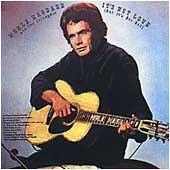
It's Not Love (But It's Not Bad) is the fifteenth studio album by American country music singer Merle Haggard and The Strangers, released in 1972. It reached number one on the Billboard country albums chart. The lead off single was "It's Not Love (But it's Not Bad)" which also reached No. 1 on the charts.

Etta James Sings Funk is the eighth studio album by American Blues artist, Etta James. The album was released on Cadet Records in 1970.

"I Wonder" is a 1944 song written and originally performed by Pvt. Cecil Gant. The original version was released on the Bronze label, before Gant re-recorded it for the Gilt-Edge label in Los Angeles. The record made it to number one on the Juke Box Race Records chart and was Pvt. Gant's most successful release. In February 1945, pianist, Roosevelt Sykes hit number one with his version of the song. Sykes' version is notable in that it replaced Gant's version, at number one on the Juke Box Race Records chart.
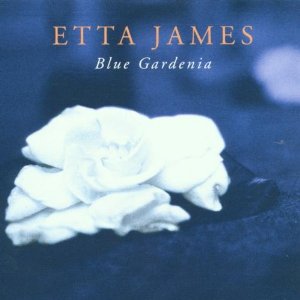
Blue Gardenia is the twenty-fifth studio album by Etta James, released through the record label Private Music. It was produced by John Snyder, who had worked with James on five of her previous studio albums. Blue Gardenia contains thirteen jazz standards from the 1930s, 1940s and 1950s. All of the standards were arranged by pianist Cedar Walton, with the exception of "Love Letters", which was arranged by Josh Sklair. Between November 2000 and February 2001, Snyder and Walton assembled musicians to record tracks while James was recovering from a flu; her vocals were added following her recovery. In addition to Walton, artists appearing on the album included Red Holloway on tenor saxophone and Dorothy Hawkins, James' mother, who provided vocals on the title track. Hawkins died in May 2002, less than a year after the album's release.

Heart of a Woman is the twenty-third studio album by Etta James released in June 1999 by RCA Records. The album consists of eleven love songs from her favorite female singers as well as a recording of her most popular song, "At Last". Recorded in March 1999, Heart of a Woman was produced by James and John Snyder with Lupe DeLeon as executive producer. James' two sons Donto and Sametto served as assistant producers. Guest musicians appearing on the album include Mike Finnigan, Red Holloway, and Jimmy Zavala. Critical reception of Heart of a Woman was mixed. The album peaked at number four on the Top Blues Albums chart of Billboard magazine.
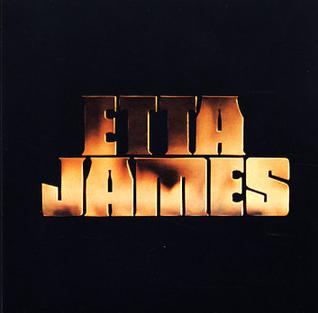
Etta James is the tenth studio album by American blues artist Etta James, released in 1973.

Etta Is Betta Than Evvah! is the twelfth studio album by Etta James, released in 1976. It was her final studio album for Chess Records.
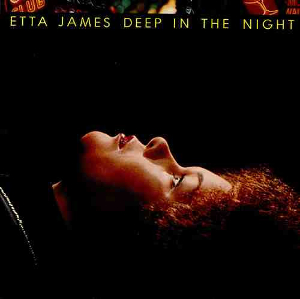
Deep in the Night is a studio album by the American musician Etta James, released in 1978.
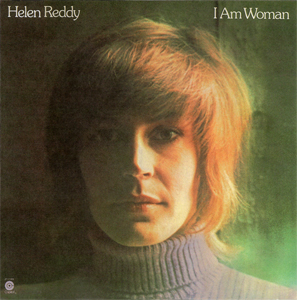
I Am Woman is the third studio album by Australian–American pop singer Helen Reddy, released on 13 November 1972, by Capitol Records. The album included her second recording of the song that gave the album its name, which was also the version that spent a week at number one on the Billboard Hot 100.
















